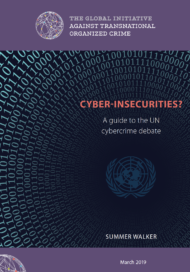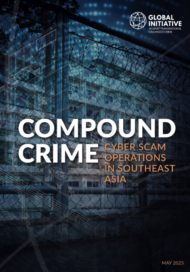Posted on 03 Sep 2025
The adult content industry has undergone a dramatic transformation in the digital era. Online content platforms such as OnlyFans and Fansly have made it easier for individuals to produce, distribute and monetize explicit content, giving rise to a new category of labour: the online sex creator.
Previously operating in the shadows, this role has become normalized among young adults seeking financial independence or even self-expression. Indeed, over a third of young digital creators now consider the creation of explicit content to be a viable source of income. Platforms such as OnlyFans enable creators to charge subscription fees or sell pay-per-view content – including live-streamed sexual performances, photographs and pre-recorded videos – directly to consumers. One creator is estimated to have pocketed US$1 million in a single day.
However, beneath the veneer of financial empowerment lies a complex set of regulatory ambiguities, particularly concerning age and consent, that intersect with human trafficking and other forms of organized crime. The sex creation profession, often portrayed as entrepreneurial, can mask dynamics of online sexual exploitation and criminal enterprises operating across borders.
Criminal exploitation
The number of reported global trafficking cases has risen by 25% since 2019. A growing proportion of these cases involve online sexual exploitation, with children increasingly victims in the production and dissemination of sexual abuse material. Organized criminal groups have been found to exploit popular digital content platforms, using fake job offers, emotional manipulation or debt bondage to coerce or groom young victims into producing various types of sexual content. They then distribute this content online to a global audience of pseudonymous viewers.
The audience for this material is as diverse as the criminal groups responsible for it, making this a truly transnational problem. For example, in December 2024, the Royal Thai Police dismantled an international sex creator ring that was using Thailand as a base to produce and distribute explicit content online worldwide. Seven people of different nationalities (British, German, Russian, Serbian and Thai) were arrested for various roles in the supply chain, from creating content to promoting it on social media platforms. Some of the suspects had amassed hundreds of thousands of followers on their accounts.
More recently, in February 2025, Europol carried out a large-scale operation involving authorities from 19 countries, which resulted in 25 arrests worldwide. The suspects were part of a criminal group that distributed AI-generated child sexual abuse material. Unfortunately, AI-generated content poses substantial legal challenges in this context, including the absence of a definition of child sexual abuse material that explicitly covers such materials.
Controlling the creators
The legal complexities surrounding age and consent in the digital sex industry are among its most fraught and controversial aspects. While many countries permit adults to create and sell sexually explicit content, the mechanisms for verifying age and consent are inconsistent at best – and in many contexts, wholly inadequate.
Under Thailand’s Criminal Code, for instance, the production and distribution of explicit material are illegal, regardless of consent, and the production, possession and distribution of all child sexual abuse material are a criminal offence. However, digital sex work is not explicitly regulated, resulting in widespread informal participation involving adults and minors. Minors usually gain access to the adult content economy by using falsified documents that misrepresent their age, placing themselves and their collaborators at risk of criminal liability.
This raises thorny legal and ethical questions: should minors be banned from participating in online sex work, even if they appear to consent? How would the authorities and online platforms verify consent? And is informed consent sufficient when young people, often facing economic hardship, choose to create explicit content? While some argue in favour of promoting autonomy and choice, others warn that consent under such pressures may in fact be illusory.
The idea of informed consent must also be interrogated in the context of commercial sex content creation. Many young creators and participants, particularly those from marginalized or economically disadvantaged communities, lack an adequate understanding of the long-term implications of making their content publicly available online. Organized criminal groups have been known to exploit these vulnerabilities – providing funding, logistics or infrastructure in exchange for a share the profit, thus effectively controlling the creators.
Protection through prevention
Several urgent interventions are needed to address the complex intersection of digital sex work, organized crime and youth protection, including awareness campaigns, the promotion of corporate social responsibility and the fostering of international legal cooperation.
Governments, educators, and civil society must collaborate to develop initiatives that inform young people of the legal, psychological and personal risks of entering the digital sex industry. These efforts should also provide guidance on identifying and reporting exploitative job offers circulating on social media platforms. Awareness should be raised regarding existing tools to combat the trade, such as Take It Down, a platform that helps individuals remove child sexual abuse material or other non-consensual explicit content once it has been published online.
Social media companies must implement stringent preventative measures to ensure that their platforms are not misused to promote or facilitate illegal activities relating to the creation of sexually explicit content. This includes deploying AI tools to block or remove hashtags and content linked to sexual exploitation, as well as stringently verifying that all participants are of legal age. Companies must be held accountable through regulatory oversight and civil litigation where appropriate. Notably, some tech platforms have already faced lawsuits for allegedly failing to protect users from trafficking and exploitation.
Law enforcement agencies must strengthen their investigative practices and prioritize the dismantling of criminal networks that exploit digital sex creators. Efforts should go beyond reactive prosecution and focus on proactive disruption. To support this, mechanisms for international legal cooperation, such as extradition and mutual legal assistance in criminal matters, must be improved to facilitate the surrender of fugitives to stand trial and serve sentences and to allow for timely collection of evidence, regardless of jurisdiction. Strengthening these instruments will have a meaningful deterrent effect against online exploitation.
Sex creation embodies the challenges of the digital age: it is borderless, monetized and increasingly complex. While it has opened new avenues for adolescent self-expression and income generation, it has also become a way for organized criminal groups to grow their profits at the expense of young victims. As this industry continues to develop, so too must our commitment to establishing robust legal frameworks and ethical standards that protect society’s most vulnerable. These protections must avoid undermining individual autonomy and instead address the structural power imbalances that place children and young people at risk.



